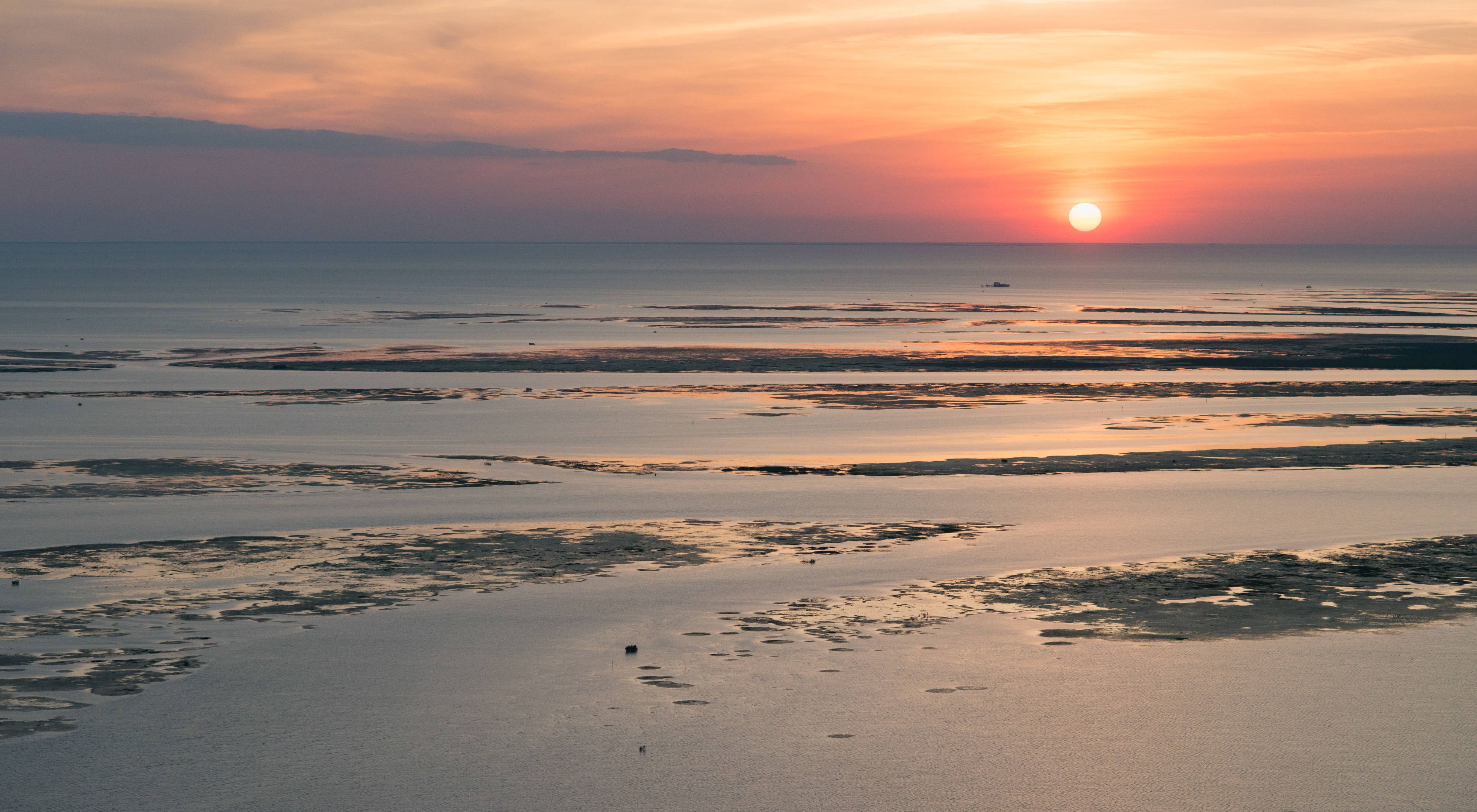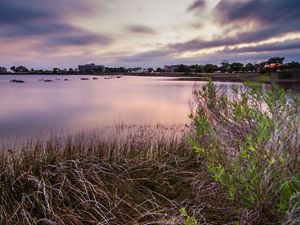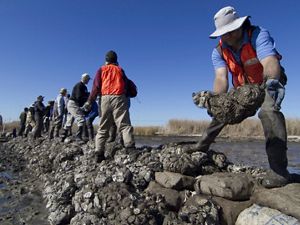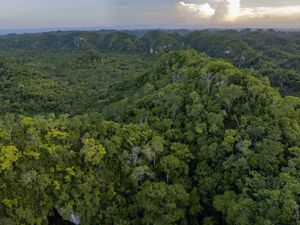Celebration of Progress
The Nature Conservancy marks conservation wins achieved throughout the Gulf Coast 15 years since the Deepwater Horizon Spill.
By Robert Bendick
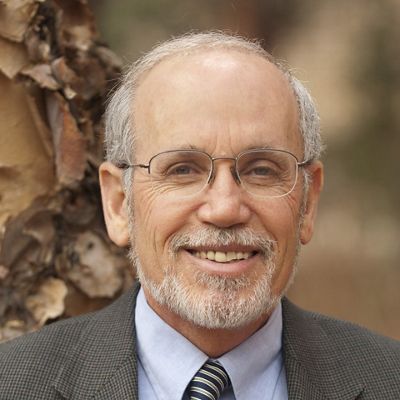
As we mark Earth Day 2025 on April 22, and 15 years since the Deepwater Horizon oil spill on April 20, it’s a good time to recognize the substantial progress that has been made to restore and conserve the Gulf and to make coastal lands and waters more accessible to the people of the region.
In April 2022, I attended the dedication of the Lightning Point coastal restoration project in Bayou La Batre, a longstanding commercial fishing and shipbuilding port in Alabama on the eastern edge of Mississippi Sound. Previously, the port suffered from several tropical storms and was experiencing severe erosion on its exposed Mississippi Sound shoreline.
The Nature Conservancy, in cooperation with the City of Bayou La Batre, the Alabama Department of Conservation and Natural Resources, Mobile County, Moffatt & Nichol Engineers, Alabama Power, RAE-Citgo, Partners for Environmental Progress, and the National Fish and Wildlife Foundation designed and constructed a complex of breakwaters, oyster reefs, salt marshes, tidal creeks and upland buffers. These have reduced the impacts of storms on the port while providing natural habitat and enabling public access for fishing and wildlife observation.
On that beautiful April day, Alabama Governor Kay Ivey and other state and local officials gathered to celebrate the Lightning Point project’s completion. I can still see their smiling faces, and that good feeling was not misplaced. The project has worked just as planned to reduce storm damage while increasing fish and wildlife habitat. Lightning Point is greatly valued by the local community as a place to enjoy the scenic and natural character of Mississippi Sound.
Since the Deepwater Horizon oil spill ended in late 2010, and the legal actions relating to the spill were settled in 2016, federal, state and local agencies and private partners have undertaken hundreds of large and small projects to repair damaged and eroding salt marshes, purchase sensitive and recreationally important coastal lands, build oyster reefs for their multiple benefits, nourish beaches, create fish habitat, improve the condition of coastal forests, implement stormwater improvements, build boat ramps, and provide other access for Gulf Coast residents and visitors.
These investments will have lasting positive impacts on the economy while helping to prepare communities to weather severe storms. They also provide vital resources for fish and wildlife and protect the culture of the coast.
- For the Coastal Economy: Nature-based solutions, such as building oyster reefs and repairing salt marshes, will maintain the attractiveness of the coast for tourism and sustain the commercial seafood and sport fishing industries.
- For Safety: Conserved marshes, reefs and coastal forests mitigate the impact of storm surge and flooding.
- For Fish and Wildlife: Restoration projects provide habitat for the rich diversity of native species and opportunities for people to observe and enjoy them.
- For Culture: Coastal resilience projects maintain the rich historical relationship of the Gulf Coast’s residents to their land, water and way of life.
While the spill was a human and environmental tragedy, its aftermath has demonstrated that remarkable conservation progress is possible when people and their governments work together for a common goal — in this case saving their cherished Gulf and its benefits to people and nature in this time of more intense storms, rising seas and heavier rainfall.
This progress is worthy of celebrating.
